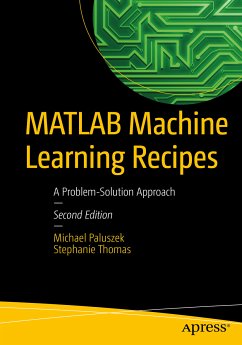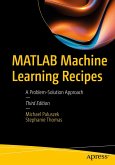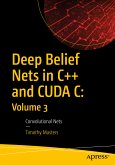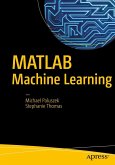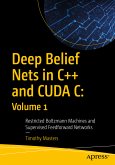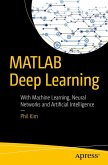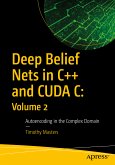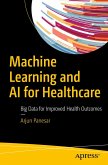Harness the power of MATLAB to resolve a wide range of machine learning challenges. This book provides a series of examples of technologies critical to machine learning. Each example solves a real-world problem.
All code in MATLAB Machine Learning Recipes: A Problem-Solution Approach is executable. The toolbox that the code uses provides a complete set of functions needed to implement all aspects of machine learning. Authors Michael Paluszek and Stephanie Thomas show how all of these technologies allow the reader to build sophisticated applications to solve problems with pattern recognition, autonomous driving, expert systems, and much more.
You will:
- Learn to write code for machine learning, adaptive control and estimation using MATLAB
- See how these three areas complement each other
- Understand why these three areas are needed for robust machine learning applications
- Use MATLAB graphics and visualization tools for machine learning
- Code real world examples in MATLAB for major applications of machine learning in big data
Dieser Download kann aus rechtlichen Gründen nur mit Rechnungsadresse in A, B, BG, CY, CZ, D, DK, EW, E, FIN, F, GR, HR, H, IRL, I, LT, L, LR, M, NL, PL, P, R, S, SLO, SK ausgeliefert werden.

